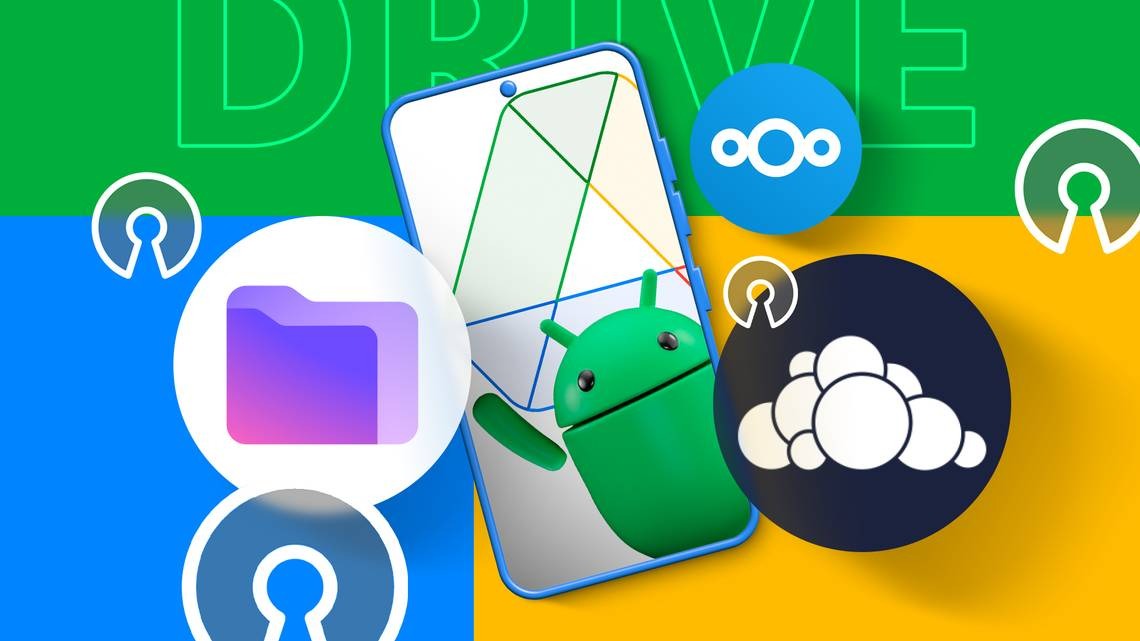
Cloud storage has become an essential part of digital life, allowing users to store, access, and share files remotely with ease. Google Drive is one of the most popular cloud storage services, offering up to 15GB of free space and seamless integration with other Google services. It’s accessible via Android devices, tablets, and PCs, making it a convenient option for many.
However, Google Drive comes with certain trade-offs, including privacy concerns, data tracking, and heavy reliance on Google’s ecosystem. If you’re looking for an open-source alternative that works on Android, here are four great options worth considering.
1. Nextcloud – Securely Upload and Sync Your Files
Nextcloud is one of the most widely used open-source cloud storage solutions, catering to both individuals and businesses. You have the flexibility to either self-host Nextcloud on your own server or opt for a managed hosting service if you prefer not to handle the technical aspects yourself. Many hosting providers offer simple one-click setups, making it easy to get started without deep technical knowledge.
Once configured, Nextcloud operates much like Google Drive. You can upload and share files, and everything syncs quickly across multiple devices. It also supports automatic photo and video uploads, making it an excellent alternative to Google Photos. The user interface is modern and intuitive, making the transition from proprietary solutions smooth.
Security is a key advantage of Nextcloud. It includes two-factor authentication, AI-powered login protection, brute force protection, end-to-end encryption, server-side encryption, and compliance with NIST password policies.
Nextcloud is completely free for personal use, though organizations looking for enhanced features and support can opt for the paid Enterprise plans.
2. ownCloud – Secure Cloud Storage with Collaboration Tools
Launched in 2010, ownCloud is another robust open-source cloud storage solution offering features similar to Google Drive. It allows users to easily upload, sync, and share files across multiple devices. One of its standout features is integration with productivity tools like OnlyOffice, Microsoft 365, and Collabora Online, enhancing collaboration options.
While ownCloud provides solutions geared towards businesses, it also offers a free Community Edition for personal users. This version includes self-hosted storage, file synchronization, sharing capabilities, and access to community apps and support forums. The only missing elements in the free plan are dedicated customer support and certain enterprise-grade features.
For those who want cloud storage without managing their own infrastructure, ownCloud.online is an alternative. It offers a fully hosted SaaS version with automatic updates and solid security. However, this hosted version is not open-source, unlike the Community Edition.
3. Proton Drive – Simple and Privacy-Focused Cloud Storage
Proton Drive, developed by the team behind Proton Mail, became open source for Android and iOS in early 2023. By 2024, Proton announced that all Proton Drive apps, including desktop versions, would also be open source. However, while Proton’s client-side apps are open source, its backend infrastructure remains proprietary. Unlike Nextcloud or ownCloud, you cannot self-host Proton Drive.
One of Proton Drive’s key features is its zero-knowledge encryption architecture, ensuring that even Proton’s employees cannot access user data. The service offers a free plan with 5GB of storage, which includes encrypted cloud storage and an online document editor. Paid plans provide additional storage and features.
Proton Drive is an excellent choice for storing sensitive data securely. However, compared to Google Drive, it lacks extensive third-party integrations. Despite this, it remains user-friendly and highly secure.
4. Seafile – Fast and Reliable Cloud Storage with Collaboration Features
Seafile is a powerful open-source cloud storage platform that enables users to store, manage, and share files across devices while maintaining security. It offers a free Community Edition that allows you to deploy Seafile on your own server at no cost.
One of Seafile’s biggest advantages is its high-speed file synchronization, enabling thousands of files to sync within minutes without consuming excessive system resources. This is a significant improvement over Google Drive, which often slows down when handling large numbers of files.
Another notable feature is its built-in collaborative document editor, similar to Google Docs. This allows users to create, edit, and publish documents directly within Seafile, making it a great tool for teamwork and productivity.
Why Open Source Cloud Storage Solutions Matter
For those who primarily work on a single device, local storage may suffice. However, most users collaborate with others, share files, and access data across multiple devices, making cloud storage a necessity. While proprietary cloud storage solutions from major corporations offer convenience, they also collect user data and track online activity, raising privacy concerns.
By opting for an open-source cloud storage solution, you gain better control over your data and online security. While these platforms may lack seamless integration with proprietary software, they prioritize privacy and give users more autonomy over their digital assets.
If you decide to stick with Google Drive, it’s a good idea to review and adjust your security settings to enhance your privacy and productivity. Additionally, if none of these open-source alternatives fully meet your needs, there are many others worth exploring until you find the perfect fit.









